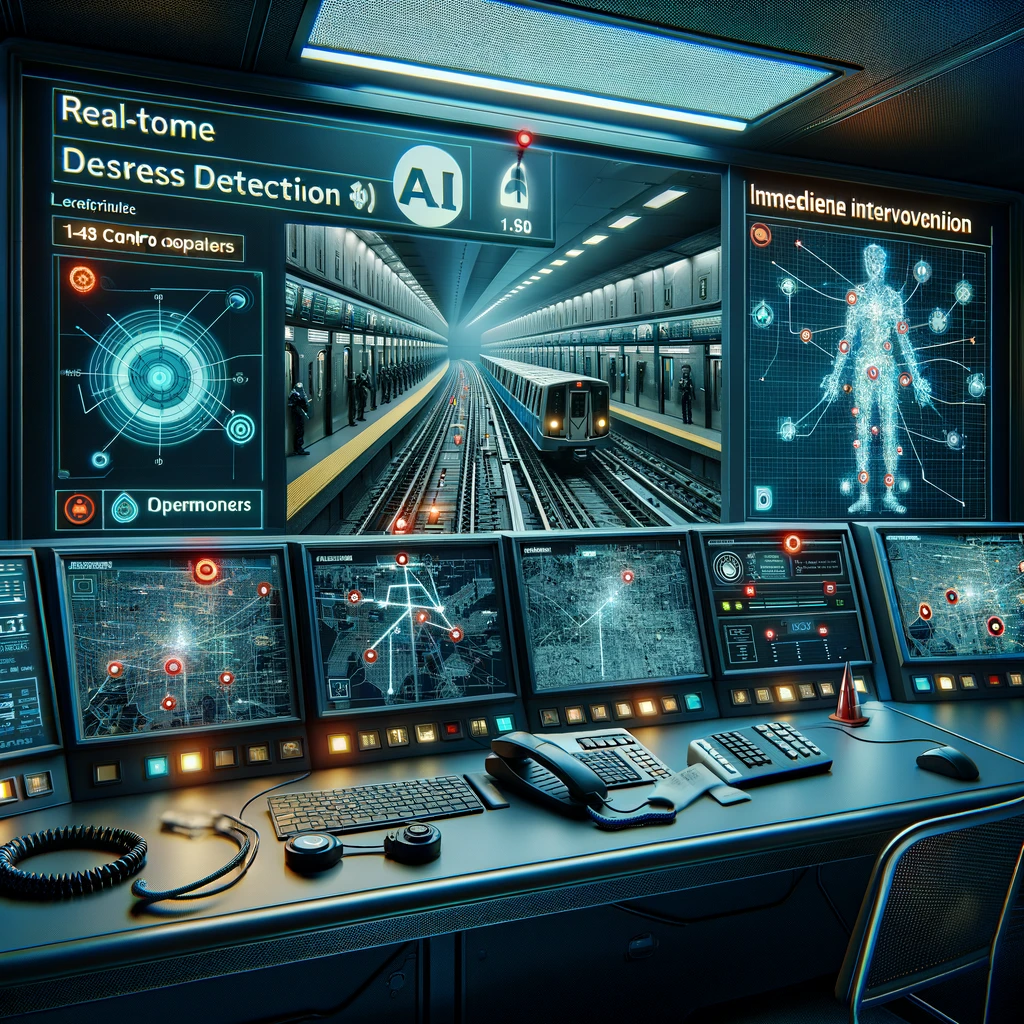AI marks a significant advancement in leveraging technology for suicide prevention within the Montreal Metro, as the Société de transport de Montréal (STM) and the Center for Suicide Intervention (CRISE) collaborate on a pioneering initiative.
The innovative system, designed to detect distress among commuters, represents a proactive approach to enhancing public safety. By deploying advanced artificial intelligence, the STM and CRISE aim to swiftly identify individuals at risk of self-harm, facilitating timely intervention measures.
This strategic partnership underscores a commitment to utilizing cutting-edge technology to improve passenger well-being and foster a secure computing environment.
The pilot project employs artificial intelligence algorithms to analyze CCTV footage in Metro stations, aiming to prevent suicides. By scanning for behavioral cues, the artificial intelligence system can identify individuals showing signs of distress or considering self-harm. This proactive approach enables timely intervention to provide support and prevent tragic incidents.
The project enhances surveillance capabilities through advanced technology, allowing for the swift identification of individuals needing assistance. By leveraging artificial intelligence surveillance for suicide prevention, authorities can effectively monitor Metro stations and intervene to safeguard the well-being of commuters.
Swift response to the AI distress signals
When distress indicators are detected, the AI system promptly notifies control rooms or metro operators in real time, facilitating rapid intervention to prevent potential tragedies. Response measures may involve dispatching special constables to the location or initiating direct communication with the distressed individual.
This swift and proactive approach enables authorities to address situations promptly, minimizing the risk of harm and ensuring the safety of individuals in distress within the Metro environment.
Brian Mishara, director of CRISE and co-investigator of the STM AI project, highlights the human-centered nature of the initiative. Stressing the significance of proactive intervention, Mishara emphasizes the support offered to individuals during mental health crises. He clarifies that the artificial intelligence system prioritizes privacy and ethical considerations by abstaining from using facial recognition software.
This approach underscores a commitment to respecting individual rights and ensuring the ethical deployment of technology in addressing mental health challenges.
Effectiveness and prospects of the AI system
Early evaluations reveal that the AI system successfully identifies one in every four individuals at risk of suicide attempts. While recognizing the system’s effectiveness, stakeholders actively consider supplementary preventive measures, including installing barriers to deter platform jumping.
Nevertheless, the implementation of such measures faces challenges due to cost considerations. Balancing the effectiveness of preventive strategies with financial constraints remains a key aspect of ongoing discussions surrounding suicide prevention initiatives within the Montreal Metro.
The STM has expressed optimism about the artificial intelligence pilot project and intends to complete its implementation within the next two years. This dedication highlights the organization’s commitment to improving passenger safety and well-being throughout the Metro network.
Furthermore, the decision to reinstate the goal of installing platform screen doors showcases the STM’s proactive stance in addressing safety issues effectively. These initiatives reflect the STM’s ongoing efforts to prioritize passenger security and enhance the overall commuting experience within the Montreal Metro.
Integrating artificial intelligence technology into suicide prevention efforts within the Montreal Metro represents a significant stride forward in leveraging innovation for public welfare. By leveraging advanced algorithms to detect signs of distress, the STM and CRISE are paving the way for more efficient and proactive intervention measures. As the project progresses, stakeholders remain optimistic about its potential to save lives and foster a safer commuting environment for all passengers.




